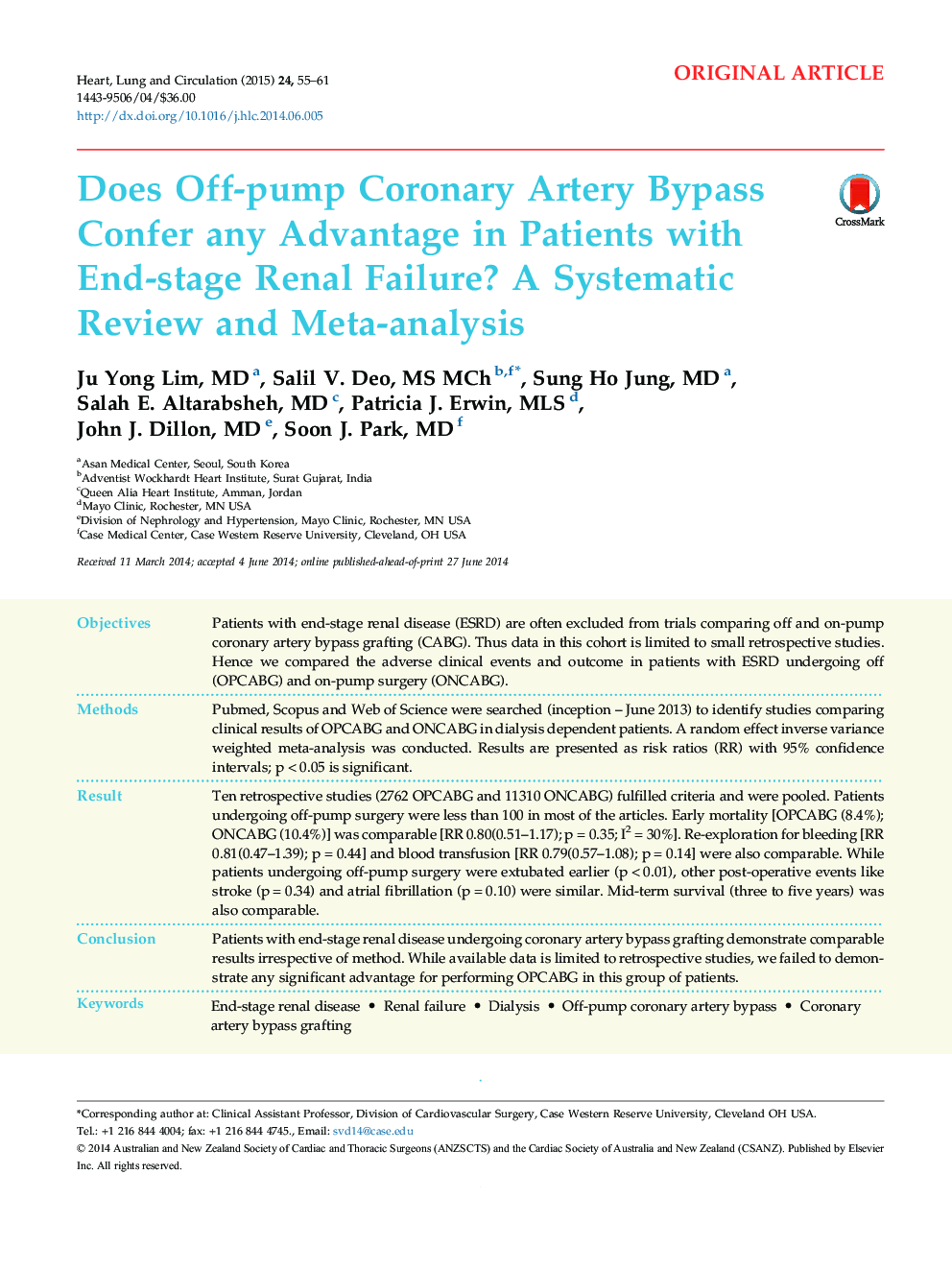| Article ID | Journal | Published Year | Pages | File Type |
|---|---|---|---|---|
| 2918267 | Heart, Lung and Circulation | 2015 | 7 Pages |
ObjectivesPatients with end-stage renal disease (ESRD) are often excluded from trials comparing off and on-pump coronary artery bypass grafting (CABG). Thus data in this cohort is limited to small retrospective studies. Hence we compared the adverse clinical events and outcome in patients with ESRD undergoing off (OPCABG) and on-pump surgery (ONCABG).MethodsPubmed, Scopus and Web of Science were searched (inception – June 2013) to identify studies comparing clinical results of OPCABG and ONCABG in dialysis dependent patients. A random effect inverse variance weighted meta-analysis was conducted. Results are presented as risk ratios (RR) with 95% confidence intervals; p < 0.05 is significant.ResultTen retrospective studies (2762 OPCABG and 11310 ONCABG) fulfilled criteria and were pooled. Patients undergoing off-pump surgery were less than 100 in most of the articles. Early mortality [OPCABG (8.4%); ONCABG (10.4%)] was comparable [RR 0.80(0.51–1.17); p = 0.35; I2 = 30%]. Re-exploration for bleeding [RR 0.81(0.47–1.39); p = 0.44] and blood transfusion [RR 0.79(0.57–1.08); p = 0.14] were also comparable. While patients undergoing off-pump surgery were extubated earlier (p < 0.01), other post-operative events like stroke (p = 0.34) and atrial fibrillation (p = 0.10) were similar. Mid-term survival (three to five years) was also comparable.ConclusionPatients with end-stage renal disease undergoing coronary artery bypass grafting demonstrate comparable results irrespective of method. While available data is limited to retrospective studies, we failed to demonstrate any significant advantage for performing OPCABG in this group of patients.
